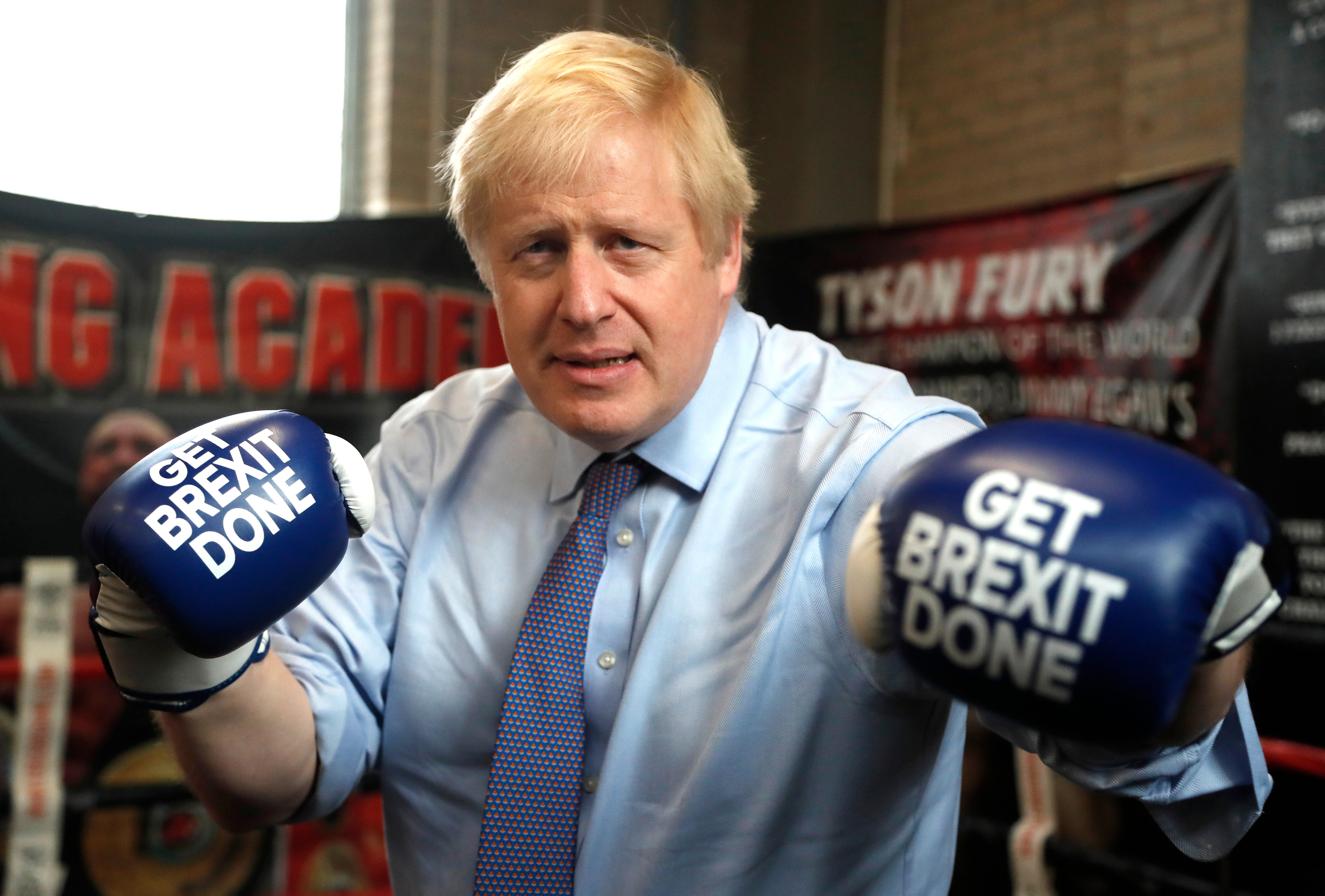Brexit loyalties will play a key role in the next general election
The Conservatives learned the right lessons from Labour’s near-win in 2017, writes John Rentoul, but who will learn the lessons of the last election for next time?


The 2017 election taught Labour how to lose and the Conservatives how to win. So said Robert Ford, professor of politics at the University of Manchester and the lead author of the definitive study of the 2019 election, at the launch of the book last night.
By which he meant that Labour surprised itself and everyone else by coming so close in the 2017 election that it foolishly thought it had to do the same but more so next time. Hence the even more overloaded and implausible manifesto shopping list, the facing both ways on Brexit, and the letting Jeremy Corbyn have a second go.
The Tories, on the other hand, learned what not to do. The inner-party slogan for the 2019 campaign was: “What we did in 2017? Don’t do that.” They got themselves a leader who enjoyed campaigning; they had an election for a reason that the voters agreed with (“Get Brexit Done” rather than “Give me a bigger majority to deal with some distant threat to getting Brexit done”); they promised more spending on public services; and they didn’t propose a dementia tax.
This was a theme that came up again and again in the book: that much of what happened in the 2019 election was determined by the previous election. The red wall was starting to crumble in 2017, but it was concealed by Labour doing better than expected nationally. The Brexit cleavage was starting to rearrange political loyalties on new lines, but the way in which it would work so well in the Tories’ favour didn’t become clear until two years later, once Boris Johnson had actually negotiated a Brexit deal that could pass the Commons.
Which led on to perhaps the most interesting part of the debate last night, which was about what the lessons of the 2019 election tell us about what might happen next time. Prof Ford said that the most important question is what happens to Brexit loyalties. Few voters these days identify strongly with a political party, but four out of every five voters sees themselves as either a Leaver or a Remainer.
There is “no precedent” in UK politics, he said, for the strength of people’s identification with how they voted on a constitutional question. It had a big effect in changing how people voted in 2019, and so the great unknown is what happens next time. Brexit identity is not just about EU membership: for both sides, Leave and Remain, it is “a way of life”, Prof Ford said.
So while it is possible that Brexit loyalty will fade, now that the question has been decided for the foreseeable future, it is more likely that the realignment of politics will continue – not least because of the perpetual renegotiation of the terms of the Brexit deal.
One aspect of this is the Great Class Inversion, which means that the Conservatives are more a working-class party than Labour – although this is complicated by age: the Tories are the party of working-class pensioners, while Labour still retains the support of more people of working age who regard themselves as working class. But Labour is increasingly becoming the party of liberal graduates, whose votes are unhelpfully concentrated in urban seats. The Labour core vote may be growing, while the Tory core is dying off, but the Tory vote is so much more efficiently distributed that the party has a built-in advantage that is likely to last for several more elections.
Indeed, one of the striking conclusions of The British General Election of 2019 is that the Conservatives would have won a majority of 130 if Nigel Farage had stood down his Brexit Party candidates in Labour-held seats as well as Tory ones.
Without Farage, the Tories would start the next election in a better position than the 80-seat majority they actually won last time – and they will gain a further dozen seats or so from the new boundaries that will come in in 2023. But you can see why the Conservatives look a little nervously at some opinion polls suggesting that the Reform Party, as the Brexit Party has now rebranded, is picking up as much as 5 per cent support. If the party picks up on opposition to tax rises and the government’s failure to control the asylum system, it could continue to pose a threat from the right.
But the real difficulty in overcoming the post-Brexit divide remains on the Labour side. If the Tories look nervously over their “right” shoulder to Reform, Labour has a bigger problem to its “left” from the Liberal Democrats and the Greens, who could be the fashionable alternative for liberal graduates if Keir Starmer goes too aggressively for socially conservative working-class voters who nervously voted for Johnson last time.
But at least at the next election, and certainly if their strategists read this book, the parties will be learning the right lessons for next time.
‘The British General Election of 2019’, by Robert Ford, Tim Bale, Will Jennings and Paula Surridge, published by Palgrave Macmillan
Join our commenting forum
Join thought-provoking conversations, follow other Independent readers and see their replies
Comments
Bookmark popover
Removed from bookmarks